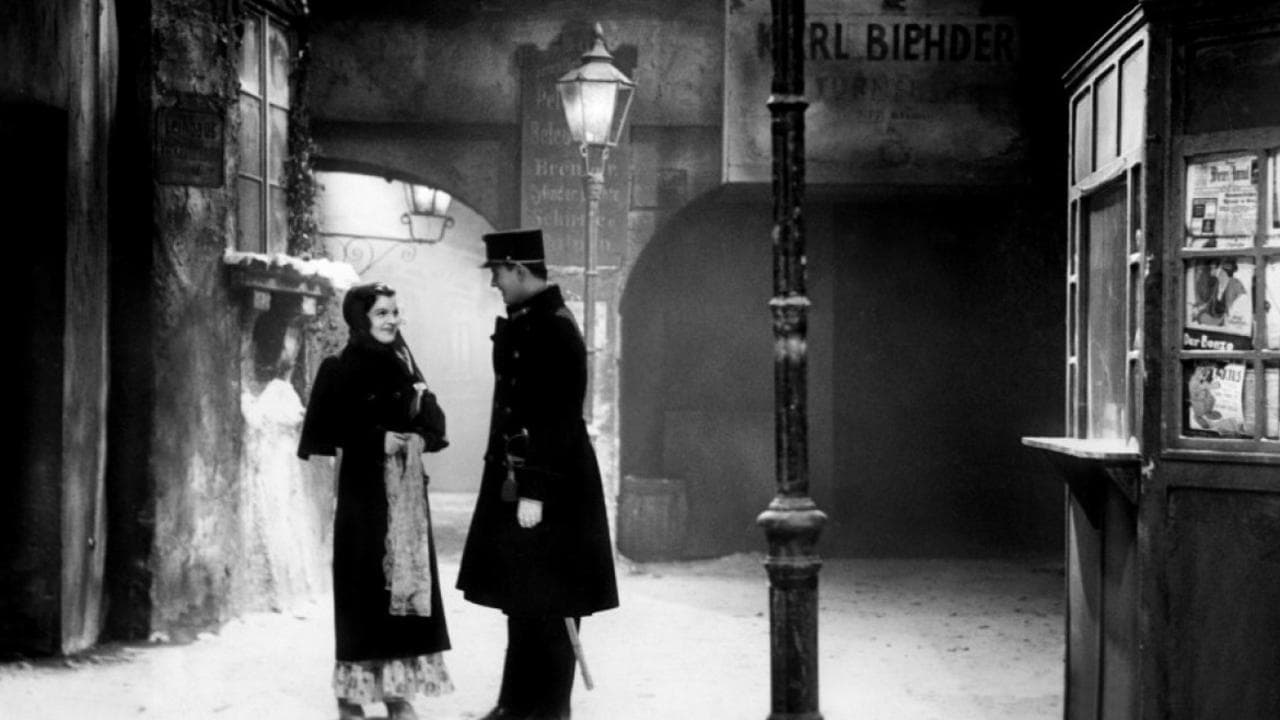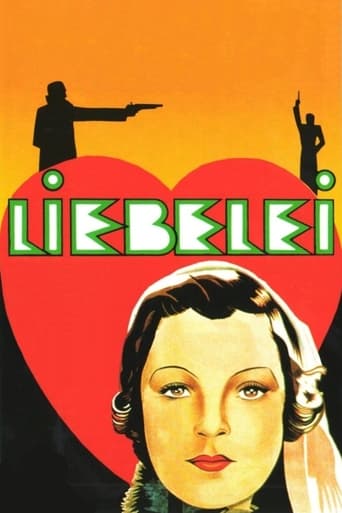

Excellent but underrated film
... View MoreThis is a coming of age storyline that you've seen in one form or another for decades. It takes a truly unique voice to make yet another one worth watching.
... View MoreI enjoyed watching this film and would recommend other to give it a try , (as I am) but this movie, although enjoyable to watch due to the better than average acting fails to add anything new to its storyline that is all too familiar to these types of movies.
... View MoreThere are moments that feel comical, some horrific, and some downright inspiring but the tonal shifts hardly matter as the end results come to a film that's perfect for this time.
... View MoreAt the beginning, let me refer to my school memories. I remember discussions with my teacher of literature about the core of romanticism: its Utopian ideals and its Human perceptions. I had considered it as a purely literary abstraction until I saw this classical representative of romanticism in European cinema.The noteworthy story by Arthur Schnitzler could not see a better moment for its screen adaptation than the early 1930s, the period which saw the emergence of sound. Moreover, films could still avoid the propaganda mechanisms and requirements of censorship that were slowly approaching. No doubt this time saw some unforgettable movie productions of sensitively handled romance with exceptional artistry. Meanwhile, truly great talents had a chance to emerge. All seemed to be new, young, inexperienced, genuine and captivating...something that the storyline so nicely executes here. In fact, isn't that 'freshness' what the romantic content is all about?However, the content of LIEBELEI may occur to us quite predictable nowadays and surely does not, in itself, contribute to the top strengths of the movie. Duality of feelings, short happiness and inevitable sorrow, dramatic decisions, harshness of duels, 'misplaced honor' (as many reviewers put it) occur quite a prefabricated stuff that may as well fail to appeal to many viewers now. What requires particular attention in LIEBELEI is the manner everything is executed.Scenes of exceptional charm contribute to the movie's vital representation of 'artistic collaboration' between producers' creativity and viewers' perceptions. Although the entire movie is filled with beautiful visual imagery, these few that need a special mention are: Christine/Fritz's idyllic sleigh ride when their love seems to be as white as snow; opera sequence with no 'coincidence' of falling binoculars; Christine/Fritz's walk through the streets of Vienna; the waltz Fritz dances FIRST with Christine and THEN ... with the Baroness. The use of mirrors nicely highlights the undertone of duality. However, the film no longer resembles many 'silent' features and, we can say proudly: It has stood a test of time because it is PURELY a developed talkie. Why? Max Ophuels, as a rather unknown director at that time (LIEBELEI was his fifth feature) does not imply any characteristic style pursued but occurs to be fresh in the medium experimenting with directorial possibilities and methods at hand in 1933. This 'rich simplicity,' as well as 'emotional puzzle' and 'expressive use of the dialog' (with reference to Jesus Cortes's review) seem to take over at multiple levels and, consequently, appeal to us in a powerful manner. The cameraman Franz Planer proves his skills in some technically flawless camera movements, just to note a significant shot of Fritz and the Baron while the former one leaves the mansion in secret and the latter one comes there with suspicion. Among other crew, Theo Mackeben nicely contributes to the film's atmosphere. Thanks to music, both the tunes of waltzes and the classical pieces by Mozart and Beethoven, we may feel the charm of the early 20th century Vienna when the monarchy was still in its pinnacle. The use of classical music: some doubts may arise with Beethoven's 5th symphony in the emotionally climactic moment as a bit disturbing. Depends on how you perceive it. But where the truly memorable impact of this movie lies is in the acting.Two couples in the lead, seemingly, but only one person who stands out and steals the attention. That is MAGDA SCHNEIDER, Romy's mother in her youth (mind you it is 1933 when she was still not married to Wolf Albach-Retty). Many viewers know her from her mature age on the screen in the color 'Heimatfilme.' Also for them, her role in LIEBELEI will be extremely surprising. If someone sees the film entirely for the sake of Magda Schneider, she/he will not be disappointed. The whole spectrum of her abilities lies in portraying the rather naive but very genuine and honest character whose ideal state of life is love (a purely romantic character). In the beautiful scene, she says to her beloved Fritz about being content with whatever happens - she found love and that makes for all happiness. In the extraordinary finale sequence with the over-long close-up, Ms Schneider proves an extraordinary talent depicting all feelings, from confusion, shock, disbelief, fear to unimaginable grief. The camera is placed in such a way that we see her like the people who come with bad tidings. The moment is a masterpiece. But Miss Schneider does not only act in LIEBELEI she also sings a folk song "Schwesterlein" which expresses enthusiasm with nostalgia hidden in the inner life? OTHER CAST: Wolfgang Liebeneiner is adequate but not outstanding as Fritz his duality is constantly highlighted, he is not very believable in the scenes with Christine because there is another reality that exists in his life Mr Liebeneiner is most memorable when he visits Christine's house to say 'goodbye' and she is not there. What emerges from his acting is realizing a sad fact. He really opens his eyes to what situation he has found himself in, he has placed himself in. Luise Ullrich and Carl Esmond depict the contrary couple with less romantic feelings, perhaps, but more stable future. This is particularly visible in Mizzi's character (Ullrich) contrasted to Christine's: romantic versus rational. Among the supporting cast, a mention must be made of Paul Hoerbiger, Gustaf Gruendgens and Olga Tschechowa who supply the movie with the feeling of promising days in Austrian cinema. An outstanding production and unique in its medium is clearly more Magda Schneider's artistic victory than Max Ophuels's. Much later, remade as CHRISTINE with Romy Schneider, the story proved its popularity among audiences. The classical LIEBELEI, as a supreme production accordingly, is truly a milestone that stands on its own. Following Christine's thoughts in the movie, viewers are deeply influenced by its romantic mood and its concept of 'eternity.' What is 'endless?' Longer than one lives...perhaps...but not longer than one loves.
... View MoreThe camera of Franz Planer follows the protagonists in long tracking shots, observes precisely the development of an affection and later deep love between Fritz (Wolfgang Liebeneiner) and Christine (Magda Schneider) during the nightly walk through the sleeping city and their endless swings of waltzing through the empty coffee bar. It is also great how Ophüls exemplarily trusts in the viewer's imagination to make things visible. The couple has forgotten the world around them, being only close together, overwhelmed by the feelings, which suddenly arise in them. The slow waltz resembles a soft hug, but the melancholy in this dance is perceptible and especially Fritz, who has a secret tête-à-tête with a bored baroness, seems to fear, that the love for Christine might not have a happy ending.And last but not least some words about Gustaf Gründgens who plays the cheated baron: In the scenes, he is acting mainly only with looks, with stringent, frigid looks, that whoosh across the room like bullets. The precision of his performance is masterful and probably the best in this film.
... View MoreA wonderful picture that shows how early in his career Ophuls mastered melodrama. As melodrama indicates, it's drama with music, and from the start Ophuls sets in motion an operistic, artificial mood. Every performance is self-conscious, aware of being representing; all sets are shown thoroughly, characters leave the scene and the camera remains a few seconds in the empty decor; even the way the snows falls from the sky appears to be fake. Still the film has an admirable freshness and engages the audience in an almost hypnotic trip, to which Ophuls' floating camera and his modern, dramatic use of the score contribute big time. Max Ophuls can be paralleled with Douglas Sirk as a director that purposely breaks up with any trace of reality in order to convey a truth that is purely cinematic.
... View MoreThis is truly an excellent film, and it's production values totally belie the date of release.If you like it, take time out to read the play Liebelei by Arthur Schnitzler. The guy above me misspelled his name, so you won't find it by searching that way! I think it's been translated into English as 'Flirtations'. You will discover that this is one of the earliest examples of a good story being taken (granted these days it's done by Hollywood) and mutated to fit the dramatic formula. For instance, our two protagonists are not cavalry officers, but members of the 'fin de siecle' bourgeois class who have bought they're way in as reserves at the officer level, they only train 3 or 4 times a year. The love story portrayed in the film is not in the book in the same way, and we never meet the woman Fritz is having an affair with, we don't even learn her name.Still, this is a good film worth watching if you have the time to seek it out.
... View More